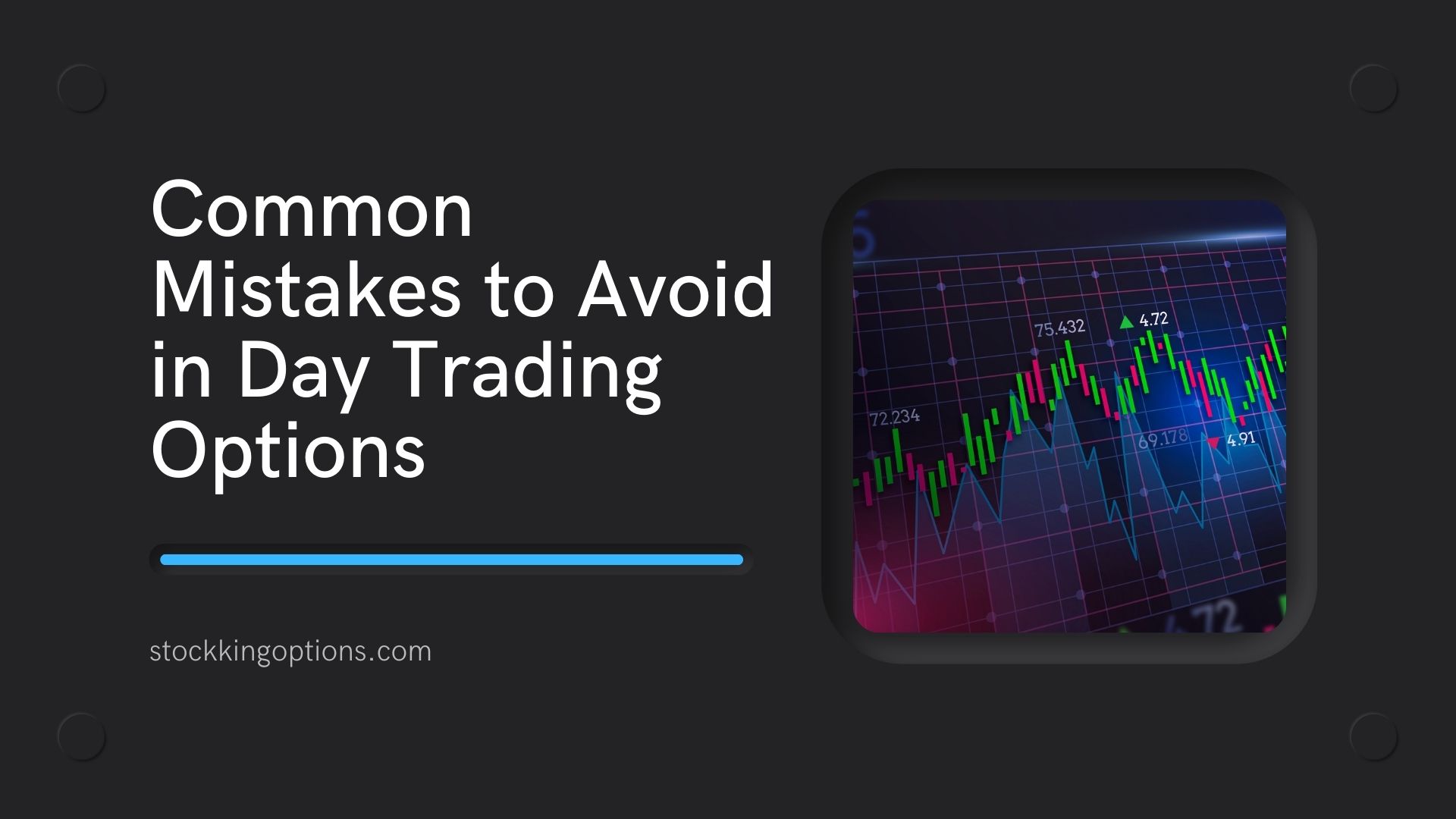
Are you tired of making costly errors while day trading options? It’s time to put an end to those detrimental mistakes and take control of your trading game! In this blog post, we will delve into the world of day trading options and unveil some common pitfalls that traders often stumble upon. From improper risk management strategies to overlooking market trends, we’ve got you covered. Join us on this journey as we uncover the secrets behind successful option trading and pave the way for profitability in your ventures. Get ready to avoid these blunders like a pro!
Overtrading and Its Consequences
Overtrading is a common mistake that many new and experienced day traders make when trading options. It refers to the practice of making too many trades, beyond what your capital or risk management strategy can handle. While it may seem like an effective way to increase profits, overtrading can have serious consequences on your success as a day trader.
One of the main consequences of overtrading is the negative impact it has on your overall profitability. When you make too many trades, you increase transaction costs, such as commissions and fees, which eat into your profits. In addition, overtrading often leads to impulsive and emotional decision-making, resulting in poor trade execution and potential losses.
Another consequence of overtrading is the increased level of stress and mental strain it places on a trader. Constantly monitoring multiple positions and making frequent trades can be mentally exhausting and lead to burnout. This can ultimately affect your ability to make rational decisions when executing trades and negatively impact your performance.
Moreover, overtrading also puts you at a higher risk for making mistakes or overlooking important details. With so many trades happening simultaneously, it’s easy to miss crucial information or fail to properly analyze market trends before entering a trade. This increases the likelihood of losses and decreases the chances of success.
In addition, overtrading can have long-term financial consequences as well. If you continue this pattern without any regard for proper risk management strategies, you may eventually exhaust your trading capital or even accumulate debt due to leverage trading.
Ignoring Market Trends and Indicators
Ignoring Market Trends and Indicators is one of the most common mistakes new traders make in day trading options. Many beginners tend to get caught up in their emotions and let them drive their decisions, ignoring essential market trends and indicators that could determine the success or failure of a trade.
One crucial aspect of successful day trading is recognizing market trends and indicators. These are patterns or signals that can help you predict the direction of a stock’s price movement. By identifying these trends, traders can make informed decisions on when to buy or sell an option.
However, many new traders ignore market trends because they believe it takes too much time and effort to analyze them. Others may not have a proper understanding of how to read charts and identify trends effectively. Ignoring market trends can be a costly mistake as it can result in missed opportunities for profitable trades.
Similarly, disregarding key indicators that provide valuable information about a stock’s movement can lead to significant losses. Technical indicators, such as moving averages, volume analysis, and stochastic oscillators, help traders determine when to enter or exit a trade by providing insights into the stock’s momentum.
Moreover, failing to consider market sentiment is another common mistake among novice traders who rely solely on technical analysis. Market sentiment reflects investors’ overall attitude towards a particular company or industry and plays an essential role in determining stock prices.
For example, if there is negative news about a company’s financial performance or regulatory issues within their industry sector, it could significantly impact that company’s stock price regardless of any analysis.
The Dangers of Emotional Decision-Making in Options Trading
The world of options trading can be a highly emotional one. With the potential for large profits and significant losses, it is easy to get swept up in the excitement and make decisions based on emotions rather than logical analysis. However, emotional decision-making can be dangerous, especially when it comes to options trading.
One of the biggest dangers of emotional decision-making in options trading is that it often leads to impulsive choices. When traders are driven by their emotions, they may act quickly without fully understanding the risks involved. This can result in making hasty trades without proper research or analysis, leading to potential losses and this is what we help with at Stock King Options.
Emotional decision-making can also cause traders to hold onto losing positions for too long. It is natural for humans to have a fear of missing out (FOMO), and this fear can lead traders to hang onto stocks that are dropping in value because they do not want to miss out on any potential profit. This can result in holding onto a losing position for too long, resulting in even greater losses.
Another danger of emotionally-driven trading is overconfidence. When traders experience success due to their intuition or gut feelings, they may develop an inflated sense of self-confidence and believe that they do not need proper risk management strategies or technical analysis tools. This overconfidence can lead traders astray and cause them to take on undue risk, potentially resulting in significant losses.
Emotions such as greed and fear are also common pitfalls when it comes to options trading. Greed drives traders to take more risks than necessary.




